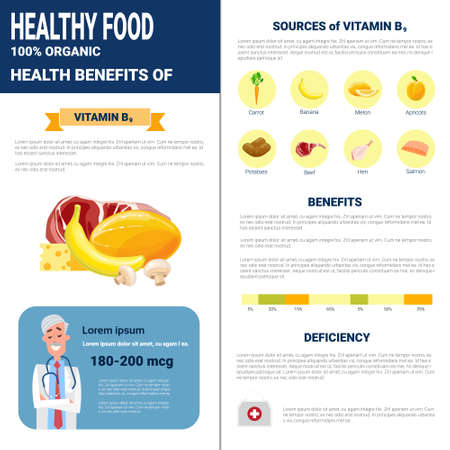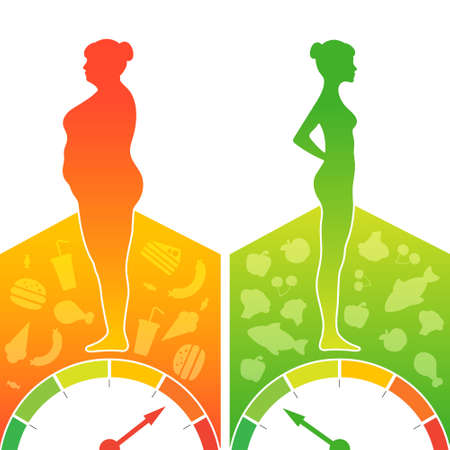Understanding Detox: What Does It Truly Mean?
The term “detox” has become a buzzword across the UK, appearing in everything from supermarket shelves to wellness blogs. But what does detoxification really mean? At its core, detox refers to the process of removing toxins from the body, a function our liver and kidneys perform naturally every day. In scientific terms, detoxification is a metabolic process that neutralises or eliminates harmful substances. However, in British popular culture, the word “detox” often takes on broader meanings—ranging from juice cleanses after festive indulgence to digital detoxes for mental clarity. Many people in the UK associate detox with a quick fix or a reset button following periods of excess. While some of these interpretations are rooted in tradition and folklore—think herbal teas and natural remedies—the science behind detox remains focused on supporting our bodys inherent cleansing systems rather than relying on trendy products or restrictive diets.
2. Common Myths About Detox in Britain
Detoxing has become a buzzword across the UK, with countless products and plans promising to help us ‘cleanse’ our bodies and jumpstart a healthier lifestyle. But how much truth lies behind these popular approaches? Let’s explore some of the most persistent myths around detoxing in Britain and understand why these ideas remain so widespread.
Popular Detox Myths in the UK
| Myth | Description | Why It Persists |
|---|---|---|
| Juice Cleanses | Drinking only fruit or vegetable juices for several days claims to flush out toxins and boost energy. | Widely promoted by celebrities and wellness influencers; easy access to pre-made cleanse kits in UK supermarkets. |
| Tea Detoxes (“Teatox”) | Special herbal teas claim to detoxify the body, support weight loss, and improve skin health. | Appealing packaging, endorsements from social media personalities, and the British love of tea contribute to its popularity. |
| Quick Fix Supplements | Pills, powders, or drinks that promise immediate detoxification and rapid results. | Busy lifestyles and desire for instant solutions make these products attractive; strong marketing campaigns add to the allure. |
The Influence of Culture and Media
In Britain, traditional habits like enjoying a cuppa or looking for quick health fixes intersect with global wellness trends. Social media is especially influential—many influencers showcase their detox journeys, making such regimes seem both effective and fashionable. Local shops and online stores stock a variety of detox products, normalising their use despite limited scientific backing. This combination of cultural acceptance and persuasive advertising ensures that detox myths continue to thrive throughout the UK.

3. How the Body Detoxifies Naturally
It’s easy to be swept up by trendy detox diets and products promising a quick fix, but the human body already has an impressive natural detoxification system. Understanding this process is essential for separating fact from fiction—especially here in the UK, where our dietary habits and lifestyle can play a significant role. Let’s delve into how the body keeps itself clean and balanced, starting with some of its most vital organs.
The Liver: The Central Detox Powerhouse
The liver is often described as the body’s chemical processing plant. It’s responsible for filtering blood coming from the digestive tract, breaking down harmful substances such as alcohol or medication, and converting toxins into harmless compounds that can be safely eliminated. In the context of typical British diets—sometimes rich in processed foods or the occasional tipple—the liver works tirelessly to maintain our wellbeing.
The Kidneys: Nature’s Filtration System
Your kidneys act as highly sophisticated filters, removing waste products and excess fluids through urine. They constantly monitor and balance electrolytes like sodium and potassium, ensuring your body stays hydrated and healthy. Drinking enough water—a simple yet effective British habit—is key to supporting kidney function.
The Skin: More Than Just a Barrier
While we often focus on skincare for aesthetic reasons, our skin also plays an active role in detoxification through sweating. Regular gentle exercise, whether it’s a brisk walk across the local park or a calming yoga session at home, encourages perspiration which helps remove certain toxins naturally.
Lungs and Digestive Tract: Additional Defenders
Your lungs filter airborne toxins every time you breathe, while your digestive tract eliminates solid waste and harmful bacteria. A diet rich in fibre from whole grains, fruits, and vegetables—staples increasingly embraced in UK homes—can support regular bowel movements and overall gut health.
Embracing Natural Balance
In summary, your body is exceptionally well-equipped to detoxify itself when given the right support: a balanced diet, adequate hydration, and regular physical activity. Instead of relying on fads or expensive cleanses, trust in these natural processes and make small, sustainable lifestyle choices that nurture your innate ability to stay well.
4. Scientific Evidence: What Works and What Doesn’t
Within the UK, detox has become a buzzword, but separating fact from fiction is crucial. Current research offers a clearer perspective on which detox methods genuinely support health and which fall short. Leading British health authorities, such as the NHS and the British Dietetic Association (BDA), consistently stress that the human body—especially the liver, kidneys, skin, and lungs—has evolved to naturally eliminate toxins without the need for extreme interventions.
What Is Supported by Science?
Several lifestyle habits have robust scientific backing for supporting the body’s natural detoxification processes. These are simple, sustainable actions that fit comfortably into most people’s daily lives in the UK. Here is a quick summary:
| Method | Scientific Support | UK Experts Perspective |
|---|---|---|
| Drinking Water | Strong evidence supports adequate hydration for kidney function. | NHS recommends regular water intake as fundamental to health. |
| A Balanced Diet Rich in Fibre | Research confirms fibre helps digestive health and elimination of waste. | BDA advocates eating plenty of fruits, vegetables, and whole grains. |
| Regular Physical Activity | Exercise aids circulation and lymphatic drainage, promoting toxin removal. | NHS guidelines recommend at least 150 minutes of moderate exercise weekly. |
What Lacks Credible Evidence?
Conversely, many popular detox trends lack solid scientific foundation. The following table outlines some commonly promoted methods and what UK experts say about them:
| Method | Lack of Evidence | UK Experts Viewpoint |
|---|---|---|
| Juice Cleanses | No clinical evidence they remove toxins or lead to lasting weight loss; may cause nutrient imbalances. | BDA warns against restrictive diets like juice cleanses due to potential harm and inefficacy. |
| Detox Teas & Supplements | No proof these products speed up detoxification; some may be harmful or contain unregulated ingredients. | NHS cautions that supplements are unnecessary for most and sometimes risky. |
| Extreme Fasting or “Detox” Diets | Lack of reliable studies supporting benefits; may cause fatigue or nutritional deficiencies. | BDA discourages extreme fasting outside medical supervision. |
The Role of Professional Guidance in the UK
If you’re considering a new diet or wellness regime, consulting with registered dietitians or your GP is recommended. They can provide advice rooted in evidence rather than trends. Ultimately, nurturing your body’s own natural systems through balanced nutrition, hydration, sleep, and movement remains the gold standard—endorsed by both science and respected UK health professionals.
5. A Balanced Approach to Everyday Detox In the UK
When it comes to supporting your body’s natural detox processes, there’s no need for extreme measures or expensive products. The British way of life offers plenty of opportunities to nourish your wellbeing with simple, everyday choices rooted in balance and tradition.
Embracing Seasonal British Produce
One of the easiest ways to help your body’s detoxification systems is by enjoying a colourful variety of fruits and vegetables. Opt for locally grown options like apples, berries, kale, carrots, and leeks—often found at British farmers’ markets or in your local supermarket. These foods are naturally high in fibre, antioxidants, and essential nutrients that gently support liver function and digestive health.
The Importance of Proper Hydration
Hydration is key to helping your kidneys flush out toxins. While a classic British cuppa is comforting, try balancing tea and coffee with plenty of water throughout the day. Adding a slice of lemon or cucumber can make water more appealing, especially during the warmer months or after a brisk countryside walk.
Balanced Eating—The British Way
A traditional British diet already includes many elements that promote everyday detox. Hearty vegetable soups, grilled fish like mackerel or salmon, and wholegrain breads such as granary or rye all contribute beneficial nutrients without excess sugar or additives. Remember to eat regular meals and include a mix of protein, whole grains, and plants on your plate for steady energy and optimal digestion.
Lifestyle Choices That Support Natural Detoxification
Beyond food, gentle exercise like walking in the park, gardening, or cycling through town helps circulation and reduces stress—both important for overall wellness. Prioritise sleep by winding down with herbal teas such as chamomile, and aim for consistent routines that allow your body time to rest and repair.
Avoiding Extremes: The British Balance
Ultimately, supporting your body’s natural detox doesn’t require strict cleanses or rigid diets. By embracing balanced meals based on fresh British ingredients, staying hydrated, moving regularly, and getting enough rest, you’ll cultivate a gentle yet effective approach to wellness that fits seamlessly into everyday UK life.
6. Debunking Detox Scams: Consumer Awareness
With the growing popularity of detox trends across the UK, it’s important to approach these products and claims with a healthy dose of scepticism. Many detox teas, supplements, and juices promise rapid results, but their efficacy is often unsubstantiated by science. In this final section, we’ll guide you on recognising misleading information and making sound choices for your wellbeing.
Spotting Red Flags in Detox Claims
When evaluating detox products in the UK market, look out for red flags such as grand promises—phrases like “miracle cleanse,” “instant toxin removal,” or “guaranteed weight loss” are rarely grounded in scientific evidence. Be wary of celebrity endorsements that lack clinical backing or products that avoid listing their full ingredients. Additionally, beware of companies that use vague medical jargon or claim to cure a wide range of unrelated conditions.
Check for Regulatory Approval
The UK has strict regulations on food supplements and health products. Always check if a product is approved by the Food Standards Agency (FSA) or carries the appropriate safety marks. If in doubt, consult with a registered nutritionist or your GP before making changes to your diet or supplement routine.
Empowering Yourself with Reliable Information
To make informed decisions, turn to trusted sources such as NHS guidelines, reputable health charities, or certified dietitians. Remember that genuine detoxification is primarily handled by your liver and kidneys, supported naturally by a balanced diet rich in fruits, vegetables, whole grains, and plenty of water. Before spending money on expensive detox regimes, ask yourself if the claims sound too good to be true—they probably are.
In summary, being an informed consumer protects both your health and your wallet. By understanding how to spot misleading detox products and prioritising evidence-based choices, you can support your body’s natural processes in a safe and sustainable way—a truly British approach to wellness.

